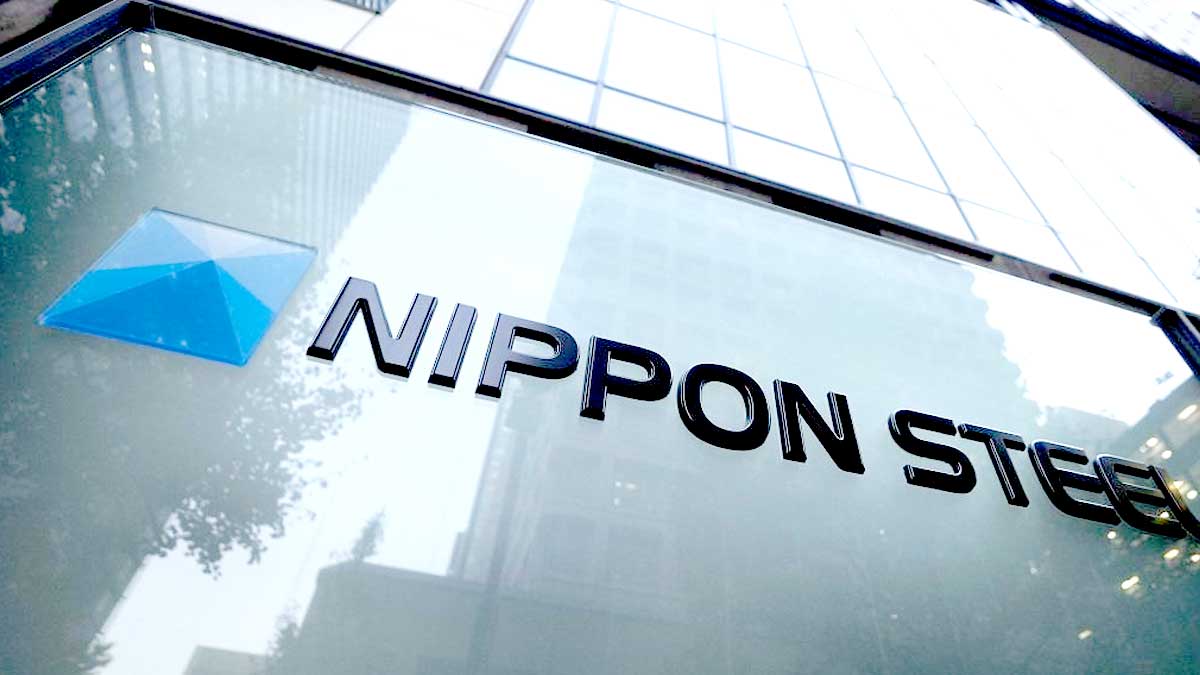- Home
- Billionaires
- Investing Newsletters
- 193CC 1000
- Article Layout 2
- Article Layout 3
- Article Layout 4
- Article Layout 5
- Article Layout 6
- Article Layout 7
- Article Layout 8
- Article Layout 9
- Article Layout 10
- Article Layout 11
- Article Layout 12
- Article Layout 13
- Article Layout 14
- Article Sidebar
- Post Format
- pages
- Archive Layouts
- Post Gallery
- Post Video Background
- Post Review
- Sponsored Post
- Leadership
- Business
- Money
- Small Business
- Innovation
- Shop
Recent Posts
US Steel Shareholders Approve $14.1B Sale to Nippon Steel

United States Steel Corporation has announced that its shareholders have approved the company’s sale to Nippon Steel, a Japanese firm, in a deal valued at $14.1 billion. Despite receiving pushback from regulators and President Joe Biden, the sale is expected to proceed.
The approval by US Steel shareholders means they are set to receive $55 in cash for each share they own. The deal, which was widely expected to be approved, has garnered support from 98% of the shares voted. Investors representing about 71% of the steelmaker’s shares participated in the vote.
President Biden has expressed his opposition to the merger, emphasizing the importance of US Steel remaining an American company owned and operated domestically. His stance is driven by his support for the United Steelworkers union, which has raised concerns about potential job losses from the deal.
Despite Nippon Steel’s assurances that there will be no job cuts resulting from the deal, the union remains skeptical. The United Steelworkers union has expressed doubt that Nippon Steel would maintain US Steel’s union contracts, particularly given the history of plant closures and job cuts in similar mergers.
The merger between US Steel and Nippon Steel is expected to be finalized in the second half of this year, pending approval from the Department of Justice and the Committee on Foreign Investment in the United States. The deal has faced scrutiny since its announcement, with concerns raised about its impact on competition and national security.
The Justice Department has launched an antitrust investigation into the merger, though details about the probe are sparse. Additionally, Senator Sherrod Brown has requested an investigation into the relationship between Nippon Steel and the Chinese steel industry, citing national security concerns.
Overall, the approval of the sale by US Steel shareholders marks a significant step in the completion of the merger. However, the deal still faces regulatory hurdles and opposition from President Biden, highlighting the complexities involved in cross-border mergers and acquisitions in sensitive industries.
Recent Posts
Categories
- 193cc Digital Assets2
- 5G1
- Aerospace & Defense46
- AI37
- Arts3
- Banking & Insurance11
- Big Data3
- Billionaires449
- Boats & Planes1
- Business328
- Careers13
- Cars & Bikes76
- CEO Network1
- CFO Network17
- CHRO Network1
- CIO Network1
- Cloud10
- CMO Network18
- Commercial Real Estate7
- Consultant1
- Consumer Tech180
- CxO1
- Cybersecurity68
- Dining1
- Diversity, Equity & Inclusion4
- Education7
- Energy8
- Enterprise Tech29
- Events11
- Fintech1
- Food & Drink2
- Franchises1
- Freelance1
- Future Of Work2
- Games141
- GIG1
- Healthcare78
- Hollywood & Entertainment186
- Houses1
- Innovation42
- Investing2
- Investing Newsletters4
- Leadership65
- Lifestyle11
- Manufacturing1
- Markets20
- Media193
- Mobile phone1
- Money13
- Personal Finance2
- Policy567
- Real Estate1
- Research6
- Retail1
- Retirement1
- Small Business1
- SportsMoney33
- Style & Beauty1
- Success Income1
- Taxes2
- Travel10
- Uncategorized8
- Vices1
- Watches & Jewelry2
- world's billionaires418
Related Articles
Tesla Recalls 700,000 Vehicles Over Tire Pressure Issue
Tesla has announced its latest recall of nearly 700,000 vehicles in the...
By 193cc Agency CouncilDecember 20, 2024MicroStrategy Stock Rallies on Nasdaq 100 News
Shares of MicroStrategy surged on Monday following the announcement that the company...
By 193cc Agency CouncilDecember 16, 2024Stanley Recalls Millions of Mugs After Burn Injuries
In a significant recall, Stanley, the well-known brand behind popular stainless steel...
By 193cc Agency CouncilDecember 12, 2024Adobe Shares Drop 12% After Lowering Revenue Outlook
Shares of Adobe experienced a significant drop of over 12% on Thursday,...
By 193cc Agency CouncilDecember 12, 2024















Leave a comment